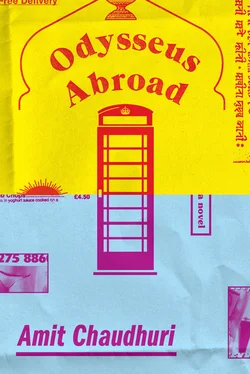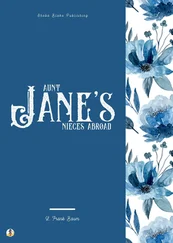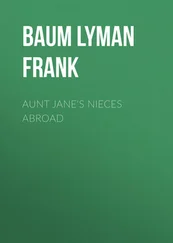—
But no Mr. Benn today! He must see Mr. Davidson instead. (He couldn’t persuade himself to call him “Nestor”—though all students addressed their teachers by their first names — not just because of the oddity of the name, but his prissy sense of formality, his Hindu — he was no practising Hindu — distaste of contact: the Mr. and Ms. So and So he used was not only a mode of deference, but a mawkish reassurance: “I won’t be presumptuous. We’ll keep our distance.”) It had to be Mr. because Nestor Davidson was neither Dr. — he had a BA from London University — nor Professor: he was, in fact, a Reader. So the Mr., democratic, anonymous, and somehow, in its two humdrum syllables, quintessentially English, had to suffice. It would do.
—
His first two years — at university and out of it — had been painful. Firstly, there was the civilisation itself, with its language — a language only secondarily his — its zebra crossings, where cars slowed down and waited, pulsating, its assortment of tea bags and cheese and pickle sandwiches, its dry, clipped way of speaking. He felt terribly excluded. Or chose to be excluded; it gave his drift and insignificance meaning in his own eyes. The students in the college — they filled him with nervousness and distrust because of their pink complexions and blue eyes, their easy taking for granted of each other: an American accent, overheard, for some reason brought him momentary lightness. In this way, he’d curtailed his visits to the college till, by the middle of the first year, he wasn’t attending a single lecture. He only appeared for his tutorials. During one of these, his tutor, a beautiful young woman called Hilary Burton, broached the subject of his meagre interface with college life: “Mrs. Bailey, the Anglo-Saxon tutor, says you’ve stopped going to her seminar.” It was the first sign that his irregularities — the liberties he’d taken in a smooth, self-governing institution that had no knowledge of him — had been noted. “I told her you haven’t been well; that you’ve been getting migraines,” said Dr. Burton, appraising his collar, eyes downcast, neutral but sympathetic. “I know what they’re like”—lowering her soft voice to a minuscule register—“I get them too.” He was vulnerable to headaches (he must have mentioned this to her some time) as he was plagued by hyperacidity. The two could be linked in an ecological chain. Migraines arose from, among other things, lack of sleep; hyperacidity on some nights destroyed rest; and Migraleve — which he kept at only a marginally less accessible spot than Double Action Rennie — could, if he wasn’t mindful, create hyperacidity. At least a few of his ailments were siblings, and now and then they chose to unite against him. Still, the consequence of Dr. Burton’s words — a complaint relayed, but shared like a confidence — was that Ananda went to the remaining four of Mrs. Bailey’s seminars, before giving up on Anglo-Saxon when it became a non-compulsory option in the second year. And so he was introduced to this primitive tongue, which had letters — like the malformed p — that had no equivalent or peer in modern English, a tongue used by proselytisers and, after the Norman Conquest, by servants. It had a claustrophobic air — not just of an island-language, but of a further retreat from the world. How remote it was from the worldly, aerated domains of Sanskrit, Persian, and Greek! It was hidden. Yet there was more to it than translated passages from the Bible (one or the other of the parables of the New Testament that were the seminar’s staple) which concluded inevitably with a gruff threat: that those who didn’t adhere to God’s ways would be “cast into the outer darkness with much gnashing of teeth.” No, there was more to the study of Anglo-Saxon than this scary outer darkness and the dull acoustics of teeth-gnashing: such as “The Dream of the Rood,” with its flaring cross, burning through time, and its warrior-Christ, more a hero than a blonde prophet. Poring over these texts gave to Ananda his first inkling that medieval England was different from what he’d glimpsed of it in movies: that the Christians here used to be stranger than any conjecture of them suggested. And, despite it being so long, the language ugly and resistant, the words heaped like debris, he was gripped by “The Battle of Maldon,” and even asked Mrs. Bailey, “Is Byrhtnoth, then, a Christian martyr or tragic hero?”—a mouthful, that name — and the pretty girl whose name he still didn’t know (he was so deprived of sex — disabled through shyness and race-consciousness — so lonely!) glanced up at him with a flicker of curiosity, and Mrs. Bailey said, “That’s an interesting question.” That, then, was the crowning glory of his first year — barely noticed by anyone but Mrs. Bailey and (possibly) the pretty girl.
—
Ananda and Hilary Burton didn’t get on. This was established early, though there was a show of encouraging cordiality on Dr. Burton’s side. Ananda wasn’t decided if he wanted to have sex with Dr. Burton, though at times he thought he did, but not at the cost of his dignity as a young man of letters (that’s how he conceived of himself) — and he wasn’t sure if she wanted to have sex with him, though there were times he thought she did, despite (or maybe impelled by) their unspoken animosity. The problem should have been clear, but it wasn’t, at least to Ananda: that Dr. Burton was a feminist, and a rather sophisticated advocate of French feminist critical theory; and that she saw Ananda as an unreconstructed Romantic, thin but glowing with universal ideals and an unforgiving discontent with all he deemed unworthy of “literature.” Ananda, typical of his gender, took “literature” as a given, a sacred fact. Imagine his confusion when he had to write his first tutorial essay on Troilus and Criseyde , and discovered that the word “poet,” as he understood it, was quite inappropriate to Chaucer. Nevertheless, he decided he’d ignore this, and gave a positive spin to his piece, pretending Chaucer was a Romantic poet. At the tutorial, Dr. Burton, trying to hide her exasperation, brandishing his essay, said: “You write very eloquently, Mr. Sen”—it took three meetings for her to graduate coquettishly to his first name; she’d even asked whether she was pronouncing the simple monosyllabic surname accurately—“and what I like is that — unlike my other students — you’ve taken the poem for what it fundamentally is : a love story!” How could he not? He was a passionate apologist for love. He was like a virginal Victorian girl: love and sex existed in separate compartments. He would argue and argue that year and the next for love in the jaded circles of the English department — the Vision of Eros, which, as Auden had said, was near-impossible to champion. For to speak of love was like “talking about ghosts”—“most people had heard of them, but very few people knew one.” He sensed that Hilary Burton’s encouragement was a backhanded compliment. A connoisseur of literary insincerity, she herself was being completely insincere: and wanted him to know it. Last time, she’d suggested that Troilus and Criseyde was not so much a poem as a forerunner of the novel, exemplifying not the poem’s “truth” but the novel’s “light and shade.” This observation was symptomatic of a general call to arms within the department, and he first became aware of it in Dr. Burton’s room; that the student needed to be educated about how the idea that literature was a repository of emotion and spontaneity was only a relatively recent Romantic fiction, no more than two centuries old, that most students had been schooled, without being aware of it, in this Romantic notion, and now required to be disabused, that there were swathes of writing before Romanticism that demonstrated that literature was not truthful and spontaneous, but deceptive and constructed. This project within the corridors and rooms of the department — a crusade, as Ananda viewed it — was one of the causes of his misery. How could this version of things account for the palliative effect Edward Thomas had on him daily, or for lines that “moved” him in poems he didn’t entirely understand?
Читать дальше











